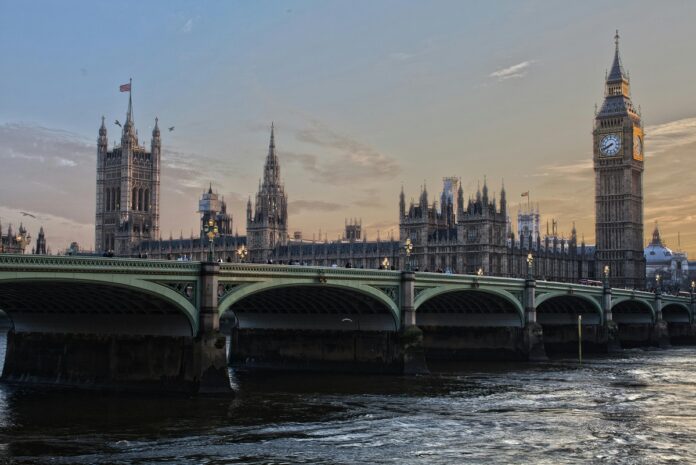Chancellor Rachel Reeves’ Autumn Budget delivered a mix of cost-of-living relief and infrastructure pledges with major implications for UK rail. For the first time in three decades, regulated rail fares will be frozen – offering direct savings to commuters across the country. The Budget also reaffirmed backing for key strategic rail projects, including the Midlands Rail Hub, Transpennine Route Upgrade, Northern Powerhouse Rail and the extension of the Docklands Light Railway.
These measures were welcomed by passengers, operators and industry leaders alike. But while the commitments offer short-term certainty, many in the rail supply chain are still calling for longer-term strategic clarity.
Historic Fare Freeze Offers Relief for Millions
In a move described as a landmark intervention, the government announced that season tickets, peak returns and off-peak intercity fares will be frozen next year. This freeze – the first in 30 years – is expected to benefit more than a billion passenger journeys and save some commuters hundreds of pounds annually.
Chancellor of the Exchequer Rachel Reeves said ahead of the budget: “Next week at the Budget I’ll set out the fair choices to deliver on the country’s priorities to cut NHS waiting lists, cut national debt and cut the cost of living. That’s why we’re choosing to freeze rail fares for the first time in 30 years, which will ease the pressure on household finances and make travelling to work, school or to visit friends and family that bit easier.”
Transport Secretary Heidi Alexander added: “We all want to see cheaper rail travel, so we’re freezing fares to help millions of passengers save money.
Commuters on more expensive routes will save more than £300 per year, meaning they keep more of their hard-earned cash.
This is part of our wider plans to rebuild Great British Railways the public can be proud of and rely on.”
Examples cited by the government include savings of £315 per year for flexi-season ticket holders commuting from Milton Keynes to London, £173 for Woking to London, and £57 for Bradford to Leeds. With transport costs accounting for roughly 14% of household expenditure, the move is expected to help reduce inflation and support high street economies.
The freeze is part of a wider vision to modernise the network through Great British Railways – a single guiding mind for track and train. Plans include a new GBR website and app, tap-in tap-out ticketing, and better onboard WiFi, aimed at making rail simpler, more affordable and more user-friendly.
Ben Plowden, CEO of Campaign for Better Transport, welcomed the decision: “We know that cost is the number one concern for people wanting to travel by train, so it is very welcome that fares will be frozen next year as we have been calling for. As well as helping households with the cost of living, this will enable more people to choose rail, reducing traffic on our roads, benefitting the economy, helping the environment, and connecting communities across the country.
One of the government’s six objectives for the reformed railways is that they should be affordable. As plans for Great British Railways gather pace, this is a positive sign that affordability for passengers is being given the high priority it deserves.”
Strategic Infrastructure Projects Retained
Alongside short-term relief, the Budget reaffirmed government backing for long-term investment. The Chancellor committed continued support for the Midlands Rail Hub, the Transpennine Route Upgrade and Northern Powerhouse Rail – major schemes central to improving east-west rail connectivity and unlocking regional growth.
The Lower Thames Crossing and the Docklands Light Railway extension to Thamesmead also featured prominently. The DLR scheme in particular is expected to unlock new housing and employment opportunities in East London.
Alistair Geddes, Sector Director for Rail at Costain, responded positively: “Upgrading the UK’s rail infrastructure helps to create a sustainable future that drives economic growth. Projects such as the Elizabeth Line have been transformational for communities in London and the surrounding areas.
“The industry will welcome the Chancellor’s commitment to UK rail infrastructure improvements across the UK, including the extension of the DLR, which will boost prosperity, support employment prospects and encourage investment in skills and education.
For any large or complex infrastructure project, collaboration is key to success. Enduring relationships can be formed through alliances to build momentum and ensure schemes are delivered safely, on time and on budget.”
These announcements will be seen as a vote of confidence in the long-term role of rail in the UK’s transport mix. However, delivery capacity and coordination remain pressing concerns.
Industry Welcomes Focus, Seeks Long-Term Vision
The Railway Industry Association (RIA) acknowledged the government’s commitment to investment but warned of gaps in longer-term planning.
Darren Caplan, RIA Chief Executive, said: “With rail making quite a few headlines recently, passengers will welcome the freeze on rail fares, today’s Budget contained limited new measures affecting the railway industry and rail businesses.
“RIA and our members – many of whom have experienced difficult times this year commercially – will welcome the Government’s recognition of the value of rail investment to boosting the UK’s growth and productivity, and its commitment to funding major rail projects, including the recently-announced Docklands Light Railway extension, and continued support for Transpennine Route Upgrade, HS2, East West Rail and Midlands Rail Hub. RIA members around the country will be involved in delivering all of these schemes.
“However, we would like to have seen in this Budget more of the Government’s plans to encourage innovative funding models in rail – whether private or ‘third party’ investment, more direction on its long term strategy for rail, and an update announcement on Northern Powerhouse Rail, a major scheme which up until recently had general cross-party political support. We urge the Government to give more clarity on these issues, to both boost jobs, GVA and Treasury revenues to the benefit of UK plc, and also to ensure the rail supply sector can play its part to efficiently and cost-effectively deliver world-class UK transport infrastructure in the future.”
That call for more strategic clarity was echoed by the Association for Consultancy and Engineering (ACE), which emphasised the need to turn headline pledges into actionable plans.
Ben Brittain, Director of Public Affairs at ACE, said: “ACE welcome the positive decisions on Northern Powerhouse Rail and PPP for Neighbourhood Health Centres (NHC) – next we need to see the practical detail and long-term clarity required to turn ambition into accelerated delivery. Today’s Budget was a chance to set out the detailed, long-term reforms needed to stabilise NISTA’s pipeline and unlock private investment.
“What is now needed is concrete information to give industry confidence. Expanded devolved transport settlements and renewed support for Northern Powerhouse Rail, alongside not proceeding with plans to equalise the rates of Landfill Tax, show that the government understand the role of infrastructure in driving regional growth.
“Infrastructure underpins productivity, jobs and economic growth. Now we want to work with government to urgently accelerate progress – including more detail on the private investment models it wants industry to rely on. Infrastructure cannot remain the missing link in the growth plan.
“The industry now needs clarity. ACE members will work in partnership to support the development and implementation of these models, but we need the government to fill in the gaps and look forward to working with them to fill in these gaps.”
The 2025 Budget signals a clear recognition of rail’s role in both household finances and national growth. A fare freeze will support ridership and affordability at a time when public trust is rebuilding. Investment commitments will keep critical infrastructure moving forward.
But long-term impact depends on delivery. The industry – from operators to suppliers – now looks to the government not just for funding announcements, but for enduring clarity on the future structure, financing and strategy of Britain’s railway. The promise is welcome. What matters now is follow-through.





